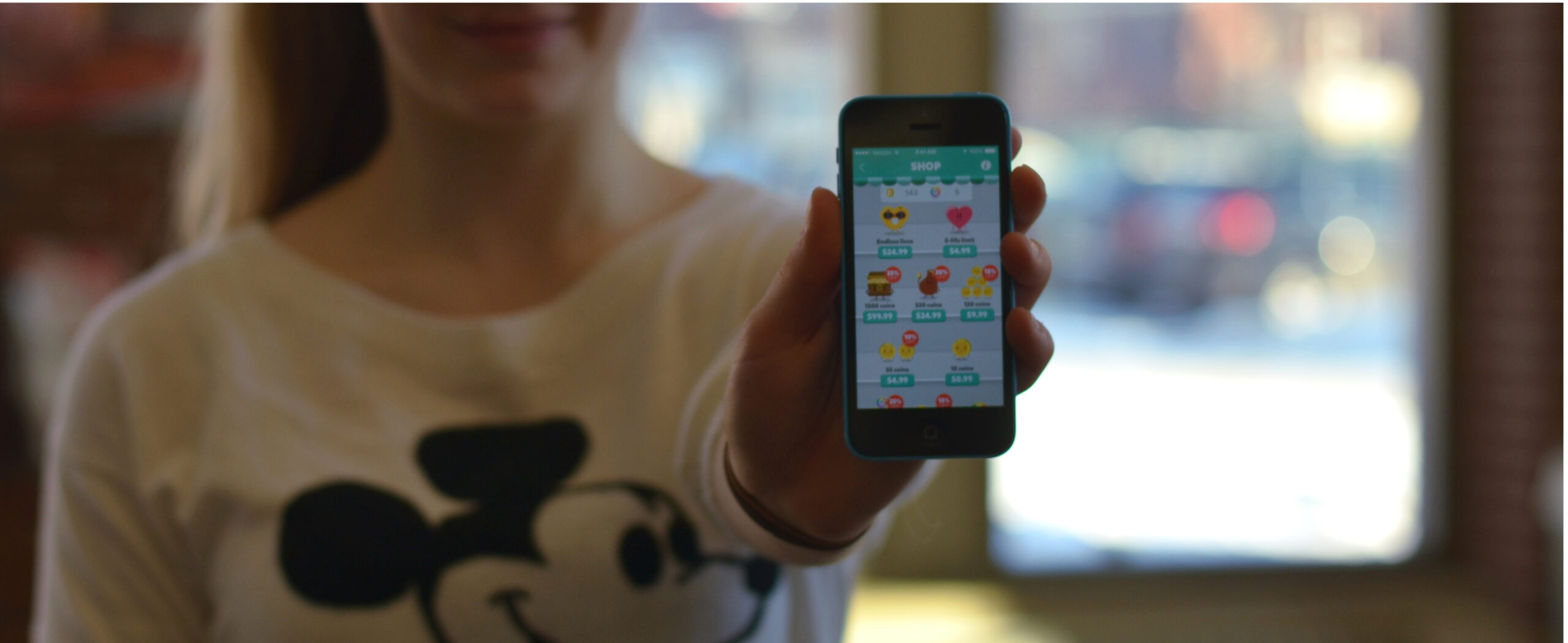In-app purchases may seem harmless, but the real cost of gems and power-ups add up
By Lars Grorud, Guest Writer
Senior Andrew Wintz lounges back on his chair in the Campus Room as he completes a Google Survey on his phone; he receives 35 cents, a pretty good payoff for the brief moment he took for answering only 2 questions. After he accumulates enough funds, Wintz purchases gems for Clash of Clans. However, he makes an important distinction between this situation and specifically paying for these types of purchases with one’s own income.
The introduction of Minnehaha’s BOLD program meant the rapid diaspora of iPads from the Apple store into our halls, with more and more students purchasing tablets every year. The system is designed to assist the student study, the iPads offer book storage, organization, and easy note-taking that can all be greatly beneficial in the average student’s workday.
However, for better or worse, the introduction of tablets also means increasing numbers of students downloading mobile games. Games like Clash of Clans, Trivia Crack and Candy Crush offer quick, mindless entertainment and are often good ways to pass the time, outside of class of course. The rise of these mobile games subsequently means the rise of microtransactions and in-app purchases within the Minnehaha community and the world.
It may seem inconsequential but David Hoffner, who teaches Economics and Philosophy, offers some interesting insight as he reminisces on the words of Pascal saying how “…men can chase a rabbit all day, or chase a ball, and it’s all done to avoid thinking about who we are…”.
Hoffner describes how he’s worried students are increasingly replacing genuine human interaction with technology; these in-app purchases are just another way we’re “entertaining ourselves to death.”
Typically, these micro-transactions come in the form of some secondary in-game “currency”, such as gems in Clash of Clans or gold bars in Candy Crush, that offer some premium benefit that isn’t attainable without the spending of real cash. In the case of Trivia Crack, players have the option of purchasing extra lives or spins, in attempt to get a leg up on opposing players. Most of the payment options come in small amounts, typically ranging from one to five dollars, hence the micro. However, despite the small dollar price, according to the app-tracking firm Distimo, microtransactions offered in free games made up 79 percent of the total revenue on combined markets of iOS and Google Play in the United States.
Most of these options seem relatively benign, if not slightly fiscally irresponsible; nobody is forcing the player to purchase any bags of virtual gems and there isn’t necessarily anything wrong with dropping a few bucks. Perhaps, however, it’s not that elementary.
Hoffner details how these in-app purchases greatly contribute to GDP, however GDP only calculates the value of goods and service, not human values.
The games that offer in-app purchases are geared towards getting players to tap that “Purchase” button through the principle of scarcity. Resources are typically limited and take time to collect, such as gems or coins in Clash of Clans. Purchasing these resources with real cash allows users to bypass the typical constraints, becoming faster, stronger, better, much sooner than other players. When players have to wait to upgrade their Town Hall, it usually means they’re not doing anything; nothing else is occupying their brain. Purchasing gems allows the player to reach this level of satisfaction and entertainment sooner.
This principle of perpetual activity is what makes games like World of Warcraft so wildly popular and addictive. There is always more to do, and none of it requires very much actual work. In turn, a sense of pseudo-accomplishment is derived.
Despite this “design for addiction,” one can hardly blame the game companies. Where there is supply, there is demand, and the free games that dominate the mobile market don’t bring in much revenue. In-app purchases are offered because players are clearly buying them; consequently some would argue that there’s a broader statement being made about the mindset of consumers, their ability to accurately analyze costs and benefits and need to feel perpetually entertained.
With the exponential evolution technology, our generation seems bent on activity. The evolution of smartphones has led to a “dependence” on entertainment. Hoffner, he detailed how he believes “play is an important part of life as long as it’s balanced by human flourishing. My worry about American life now is that it’s work, sleep, play.” He worries that there is a decreasing amount of time allotted for students to cultivate values such as “temperance, fortitude, justice, mercy”
While being highly active can be beneficial, it can be assumed that this frenetic mindset of always seeking entertainment can be detrimental. This thought process subconsciously teaches young people that life ahead will always be entertaining. Unfortunately, there are no “bags of gems” in the real world.
Subsequently, it’s understandable why people then buy these in-game currencies, which lead to instantaneous entertainment. But are we really fooling ourselves? Do we really value the sense of instant fulfillment over the long-term benefits of saving?
When talking to the Minnehaha population, the trending consensus seems to be that while it may make us temporarily feel good, there is no palpable benefit to having the best Farmville farm among your Facebook friends.

